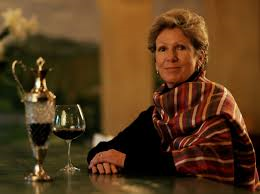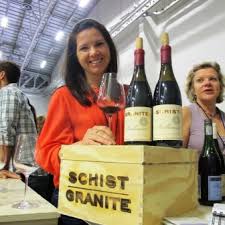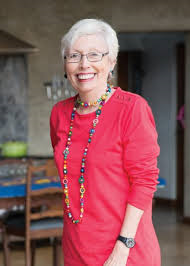Women in SA wine
South Africa is a country keenly aware of the value of a vote – something fought over so strenuously during the Apartheid era when ‘one man, one vote’ was the mantra of the disenfranchised masses. So it was quite odd to hear from a Swiss friend that women in the landlocked chocolate box country so famed for its neutrality were only granted the vote as recently as 1971!
It’s almost inconceivable that women had no say in how things were run – especially in view of the roles that many powerful women played in our country’s liberation struggle.
And in the wine fraternity the contribution women have made has been considerable – and continues to be so. Their input has included winemaking, farming, the documenting of the changes in the industry and also the crucial area of education.
Possibly one of the most daunting – and historically well documented – was Catharina Ustings Ras, an indomitable woman who outlived four husbands and left a lasting legacy at Steenberg on the Cape peninsula.
The wine farm’s website details her amazingly chequered life: from arriving in the Cape in the mid- to late-1600s as a 22-year-old widow who swiftly married a free burgher and soldier Hans Ras. He survived a knife fight on his wedding night only to be killed by a lion a few years later. Catharina’s third marriage was ended suddenly when her husband was killed by a Hottentot – and her fourth when an elephant successfully trampled her spouse underfoot! Unbowed, Catharina married a fifth and final time – and records reflect that it was in 1682 that she petitioned Simon van der Stel for land at the base of Ou Kaapse Weg. She farmed her leased 25 morgen very successfully and, in 1688, was granted title to what is nowadays Steenberg Vineyards. It was noted by a visitor to the farm, Baron von Rheede tot Drakenstein, that she was a fiercely independent woman “riding bareback like an Indian and her children resembling Brazilian cannibals”!
The matriarch of Warwick Estate in Stellenbosch’s fashionable Simonsberg area, Norma Ratcliffe, is no less feisty, taking on winemaking duties with enthusiasm and retaining a healthy interest in the latest techniques and developments, even after retiring and handing over the running of the farm to son Mike over the past decade. The resolute Canadian-born woman was known for inviting friends around for a meal – and then setting them to work beating vast quantities of egg whites to fine her barrels of red wine! “No such thing as a free lunch, right?”
 Norma Ratcliffe
Norma Ratcliffe
Altydgedacht’s Jean Parker is also spoken of in reverent tones for the role she played in the development of the Durbanville wine farm. Janey Muller of Lemberg in Tulbagh was a Swartland revolutionary long before that term was coined or Andrea Mullineux moved into the valley decades later!
 Andrea Mullineux
Andrea Mullineux
One of the most exciting developments in the South African wine fraternity post-1994 has been the breaking down of barriers of both race and sex. Names such as Carmen Stevens, who has been in charge of Amani’s winemaking since 2005, and Stellekaya’s winemaker, Ntsiki Biyela, spring to mind – along with Natasha Williams, the newly appointed winemaker responsible for white wines at Nederburg, and her viticulturist counterpart Unathi Mantshongo, whose passion for grape growing and farming is tangible; Samantha de Mornay-Hughes of Vergelegen; Praisy Dlamini of Zonnebloem and many others.
 Carmen Stevens, Ntsiki Biyela, Natasha Williams, Unathi Mantshongo and Praisy Dlamini
Carmen Stevens, Ntsiki Biyela, Natasha Williams, Unathi Mantshongo and Praisy Dlamini
Women have played a pivotal role in writing about wine – from possibly the best Cape diarist of the 1800s, Lady Anne Barnard, to Maureen Joubert’s editorship of the trade publication, Wynboer, in the 1980s and Erica Platter’s sterling sub-editorship and eagle-eyed fact checking and way with words in the Platter Wine Guide, established in 1980. Jos Baker served as assistant editor of Wine magazine at its inception in 1993, while I was at the helm of the same publication from 2000 to 2008. The women currently involved in wine writing are almost too numerous to mention!
 Erica Platter
Erica Platter
On the education front, Phyllis Hands was the first principal of the Cape Wine Academy (CWA), an organisation that has educated thousands of people the length and breadth of South Africa. Cape Wine Master (CWM) Christine Rudman also spent a stretch in charge while fellow CWM Marilyn Cooper oversaw the body’s transition to a private company rather than one funded purely by Stellenbosch Farmers’ Winery and latterly Distell. The CWA now has CWM Kristina Beuthner as its principal and Michelle Grimbeek as managing director.
Coming full circle to the training and education of future generations of winemakers, women are in charge at both the University of Stellenbosch, with Professor Maret du Toit at the Institute of Wine Biotechnology within the Department of Viticulture and Oenology, and Lorraine Geldenhuys the winemaker, lecturer and cellar manager at Elsenburg.
The South African wine fraternity is in safe – female – hands.
– Fiona McDonald